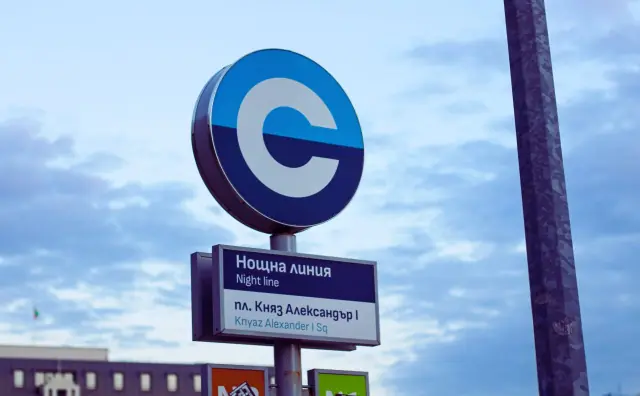
Sofia’s public transportation system faces upheaval as the city’s transport committee votes to cut night bus routes, a decision that coincides with escalating protests by transport workers over stalled labor negotiations.
The municipal council has decided to discontinue night bus lines H3 and H4 entirely, while lines H1 and H2 will now only operate on Fridays and Saturdays.
The move, supported by several political parties including GERB, BSP, VMRO, TISP, and Blue Sofia, has drawn criticism from public officials and residents alike.
Gergin Borisov, a councilor from the “Save Sofia” movement, condemned the cuts, highlighting that the number of passengers using night transport had doubled over the past year.
He argued that the decision, driven partly by a driver shortage, would not alleviate the challenges faced by Sofia’s public transport system but exacerbate them.
Borisov also rebuked comments from proponents of the closure, including Vanya Grigorova and Carlos Contrera, emphasizing that those without access to private vehicles after 11 p.m. would suffer the most.
Impact on Residents and Areas Affected
The closure of these routes significantly impacts mobility in Sofia, particularly in neighborhoods such as Ovcha Kupel, Krasna Polyana, Poduyane, Levski, Druzhba 1, Druzhba 2, Gotse Delchev, Borovo, and Hipodruma, which will lose all night transport services.
Additionally, areas like Lyulin, Obelya, Nadezhda, and Mladost will only have limited night transport options on weekends.
Critics have voiced concerns that these changes will disproportionately affect workers with late-night shifts and residents without alternative means of transportation.
Protests Loom Over Labor Dispute
Adding to the tension, Sofia’s transport sector workers are planning a protest against the absence of a valid Collective Labor Agreement.
Scheduled to begin at 5 a.m. tomorrow at the “Zemlyane” bus garage, the protest is expected to halt operations on 26 major bus routes, including popular lines such as 102, 83, 11, and 54.
The Federation of Transport Unions, which organized the protest, cited unsuccessful negotiations since December 17 as the primary reason for the demonstration.
Workers fear the absence of an agreement could lead to the loss of additional benefits, worsening already challenging conditions.
The union also expressed concerns over staffing shortages, which they claim are exacerbated by the lack of progress in labor discussions.
Political Reactions
Vanya Grigorova, a municipal councilor from “BSP for Bulgaria,” has urged unions and employers to find common ground to prevent further disruption.
While she downplayed the justification for the protest, she acknowledged the need for improved conditions for workers and a more reliable public transport system.
In contrast, Ekaterina Yordanova from GERB criticized the Federation of Transport Unions for organizing the strike. Yordanova suggested that more efficient negotiations could have averted the crisis.
Despite these criticisms, union leaders insist that their actions are necessary to protect the rights of transport workers and ensure the sustainability of the capital’s transit system.
Operational Challenges Mount
The twin crises of reduced night services and looming protests underline the operational struggles facing Sofia’s public transport system.
As residents brace for disruptions, the long-term implications of these decisions remain uncertain, with many calling for urgent reforms to address both labor and service concerns.
